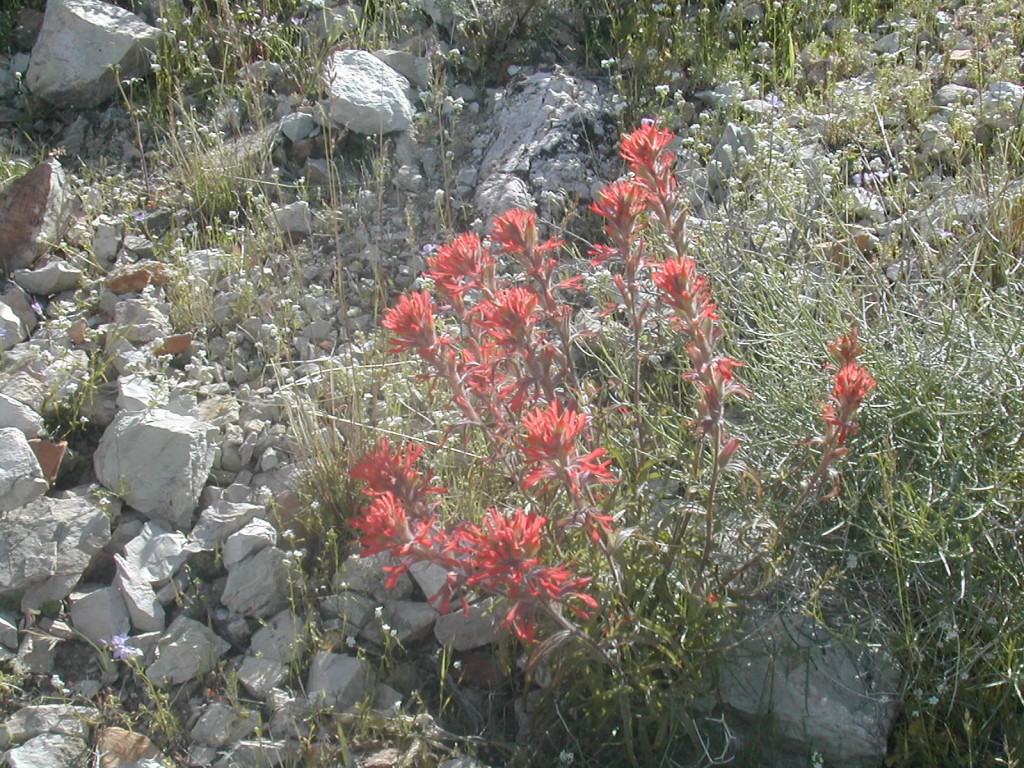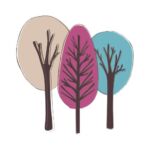Note: This year for Lent my congregation, Glendale Baptist Church, is immersing itself in Psalm 23. I’m sharing a sermon I preached several years ago.
(You can read Part 1 and Part 2.)
It was written for Cumberland Baptist Church during the season of Easter.
Somewhat uncharacteristically, I chose to use the unedited King James Version.
++++++++++++++++
3 He restoreth my soul: he leadeth me in the paths of righteousness for his name’s sake.
No matter where we go, Lynn and I seem to attract the lost. I’m not making a judgment about the salvation of souls here. I’m talking about people who need directions, the geographically lost. We’ve been asked for directions in Europe, Canada, and a large number of the 50 states. I don’t know if we look at home wherever we go, or if we just look friendly and approachable. Whatever the case, we are often asked for help with directions. And because we are both avid map readers, and tend to be mildly obsessive about knowing where we are, and possibly over confident about how to get any number of other places, we tend to find ourselves giving a lot of directions.
On this particular trip the first leg of the journey was a flight into Las Vegas, a rental car, and a quick drive out of that den of iniquity into the dessert and to Shoshone, California. In Shoshone, population 58, (no really, that’s what the sign said, Population 58 – and they might have been exaggerating) we had a room reserved at the town’s one and only motel. The Shoshone Inn. After checking in, and settling luggage which took about 3 ½ minutes, we wandered over to one of only 6 other buildings in town, the Charles Brown General store / gas station / grocery / museum / newsstand / coffee shop. We were killing a little time poking through the very sparsely stocked shelves when another customer came into the General store / gas station / grocery / museum / newsstand / coffee shop in search of – you guessed it: directions.
The 100-year rain had caused a flash flood which washed out one of the roads into Death Valley. Lynn was in the process of explaining this detour to the lost woman. “That road is washed out. You can’t go to park that way right now. . .” She interrupted him, “What park?”
Lynn answered her with a smirk, “the National Park?” The woman just looked blank. He tried again “Death Valley National Park?” No recognition registered on her face, so he continued on with the directions using a map on the wall. She was practically on top of that Spring’s most touted National Park, more than 200 square miles in size, with over 1 million visitors annually, but she didn’t even know it was there. Less than 10 miles from a place being mentioned on nearly every news and media outlet in the country for the 100-year rain and the beautiful blooming desert, but she had not a clue.
Sometimes we can be like this lost woman: practically on top of the most surprising, marvelous, magnificent expanses of God’s beauty and grace and all we can say is “What park?” We desperately need a guide, one who can give us direction to the right path, the path we don’t even realize is there for us, a path to restoration. But we are so lost that we don’t even know where we are. We don’t have a clue.
Yet all we need to do is ask the Shepherd who is waiting to guide us onto the right path, the path to restoration and to life.
4 Yea, though I walk through the valley of the shadow of death, I will fear no evil: for thou art with me; thy rod and thy staff they comfort me.
Sometimes the reason we can’t see the right path because we have our heads down. We are walking amid the shadows of life.
Death and loss have a way of casting very long shadows across our lives. Long after a death has passed, a loss through divorce, change of career, departure of an adult child from home, the rupture of a treasured friendship still the loss haunts us and casts its shadow into all the other areas of our lives. As we walk through these valleys with the shadow of death and loss all around us, the psalmist urges us to fear no evil. But one of the shadows cast by death of a loved one or a major change which leaves its gaping hole in our lives is the sense that we are vulnerable. We could be next. Our lives will not go on forever. Our health could fail. Someone else we love could leave us. We, too, will die. This kind of thinking burrows itself into our hearts and minds and confounds our joy. It prevents us from living with courage or laughter or hope. We’re always peering into the shadows, waiting for the other shoe to drop, the report to come back negative, the phone to ring in the middle of the night.
How do we keep from succumbing to this insidious kind of fear? How do we keep from losing our way on this journey we call life in the shadows cast by fear and death? The psalmist is wise. We are reminded God is with us. God is alive and well and walking along the difficult path. A shepherd guides the sheep through rocky terrain, using rod and staff, the tools of the trade to fend off wild animals, preventing spills from steep places, and rescuing the fallen. So God cares for us and walks with us through the difficult and shadowy places. God tends to our souls through all the changes, loss, and discouragements that come our way. We are never alone.
Death Valley in California got its name from a group of white settlers who tried to cross it in 1849, in their effort to get to California for the Gold Rush which gave them the name “forty-niners” Only one of the settlers actually died on the journey. But wagons bogged down in the sand and had to be left. The party argued amongst themselves and were deserted at one point by the young man who promised to help them to cross the unfamiliar wilderness, leaving them with neither map nor guide. It was actually a freak snow storm which saved them by providing enough water that they didn’t die of thirst in the Death Valley.
God’s love for us, God’s guidance and care are like the 100-year rain that fell in Death Valley and brought out vegetation and flowers in magnificent abundance. It is like the freak snow storm that saved the 49ers. Hidden in God’s shepherd-like love is an Easter truth. The wildly unexpected and never-seen: that is what the grace of God is like. So why is it so hard for us to see? Why don’t we live expecting the grace of God to nurture and sustain us? Why are we like “sheep [who] have gone astray; [and] turned every one to our own way”? When all we have to do is call out, and the Good Shepherd will come to guide and comfort . . .
(to be continued . . .)




